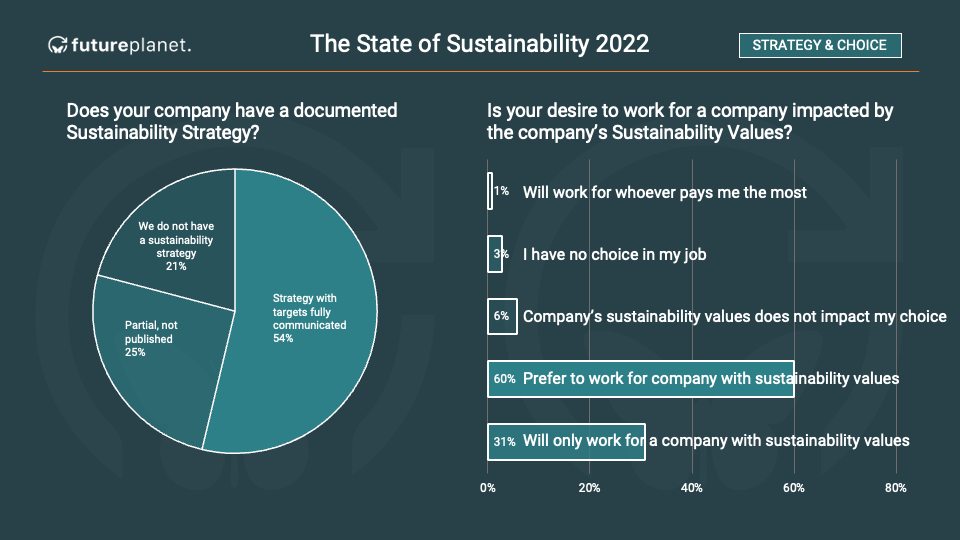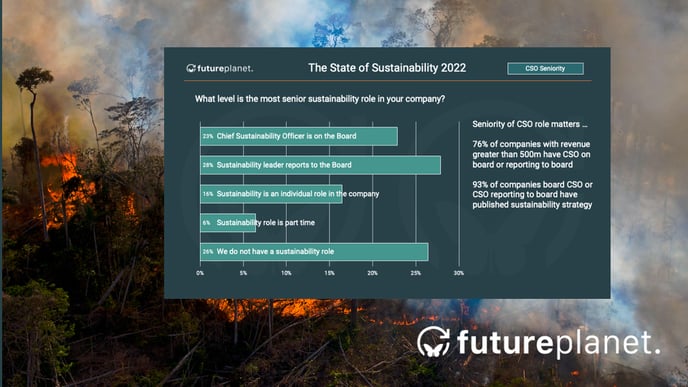The Future Belongs To The Optimists
[This was originally published as part of the Future Planet State of Sustainability Study. To request your copy of that report please email eva.]
There is much good afoot, there is much happening, and there are many signs of progress. We’re observing a youthful exuberance among passionate youths and elders alike, rightfully impatient for system change that, if successful, will put us on a path to a sustainable future. While the challenges ahead are significant, there is much to be optimistic about. As Francois Guizot, the former French statesman said, “The world belongs to optimists. Pessimists are only spectators.” For business leaders this is worth hanging on to. An optimistic approach couched in pragmatic sustainability initiatives will increase the likelihood of achieving the optimum business outcome.
We are very encouraged by how keen participants were to get involved in our inaugural State of Sustainability Study. And they brought opinions and perspectives from every corner of the globe. From Berlin to Boise, Sydney to San Paulo, Dublin to Dubai, we were struck by the pragmatically positive attitude our participants shared; recognizing the need to change what we can and discovering the opportunity of optimistically taking on the challenges ahead. Being an optimist does not mean that we bathe every day in a kaleidoscope of butterflies, or that we ignore the greed and evil in the world that brought us to this Rubicon – remembering we all played our part. It just means that in the presence of these challenges we remain resolute in our ability to overcome them.
The State of Sustainability Study gives us a unique opportunity to look through the lens of corporate sustainability, from the perspective of the study participants. In this study we learned that there is an increasing number of companies with sustainability strategies and employees who care about their employers’ attitudes to our planet and people.
Nearly four out of five companies have a sustainability strategy and half of all companies have published their strategy documents including targets and KPIs. That’s a really good start.
From the employees’ perspective, just less than a third, (31%) say they will only work with companies that have a strong sustainability ethos. That number tripled to almost nine out of ten when combined with those who have a stated preference for companies with that perspective. Practically speaking, that means that every employee who has a choice will choose a company whose sustainability strategy is truly integrated with its business strategy.
[This was originally published as part of the Future Planet State of Sustainability Study. To request your copy of that report please email eva.]
This is not well understood and the consequences of that lack of understanding are far-reaching: People tend to be less vocal about their desire for climate action because they do not realise they are in fact in the majority. Most of us want to be like everyone else, not step out of line or put our head above the parapet. But this is not the time to the shy, at least not in the context of sustainability.
Uncovering, or reaffirming, this insight from our study is important. It aligns with the conclusions of a large study of 6000 American adults reported in Scientific American in August 2022. The study suggests that nearly all Americans underestimate the extent of climate concern and more importantly they also underestimate the extent of public support—at the state and national level alike—for policy measures to address the climate emergency. We believe these findings can be extrapolated globally.
The consequences of this misperception are significant, says Boston College psychologist Gregg Sparkman, lead author of the new study, which was published in Nature Communications. Such a false impression can lead to a cycle of collective self-silencing on the topic of climate change and to decisions not to take any action to call for climate mitigation policies.
We suggest the future does indeed belong to the Optimists, those who believe change is possible. As Noam Chomsky said,
“Optimism is a strategy for making a better future, because unless you believe that the future can be better, you are unlikely to step up and take responsibility for making it so.”
[This was originally published as part of the Future Planet State of Sustainability Study.
To request your copy of that report please email eva.]

